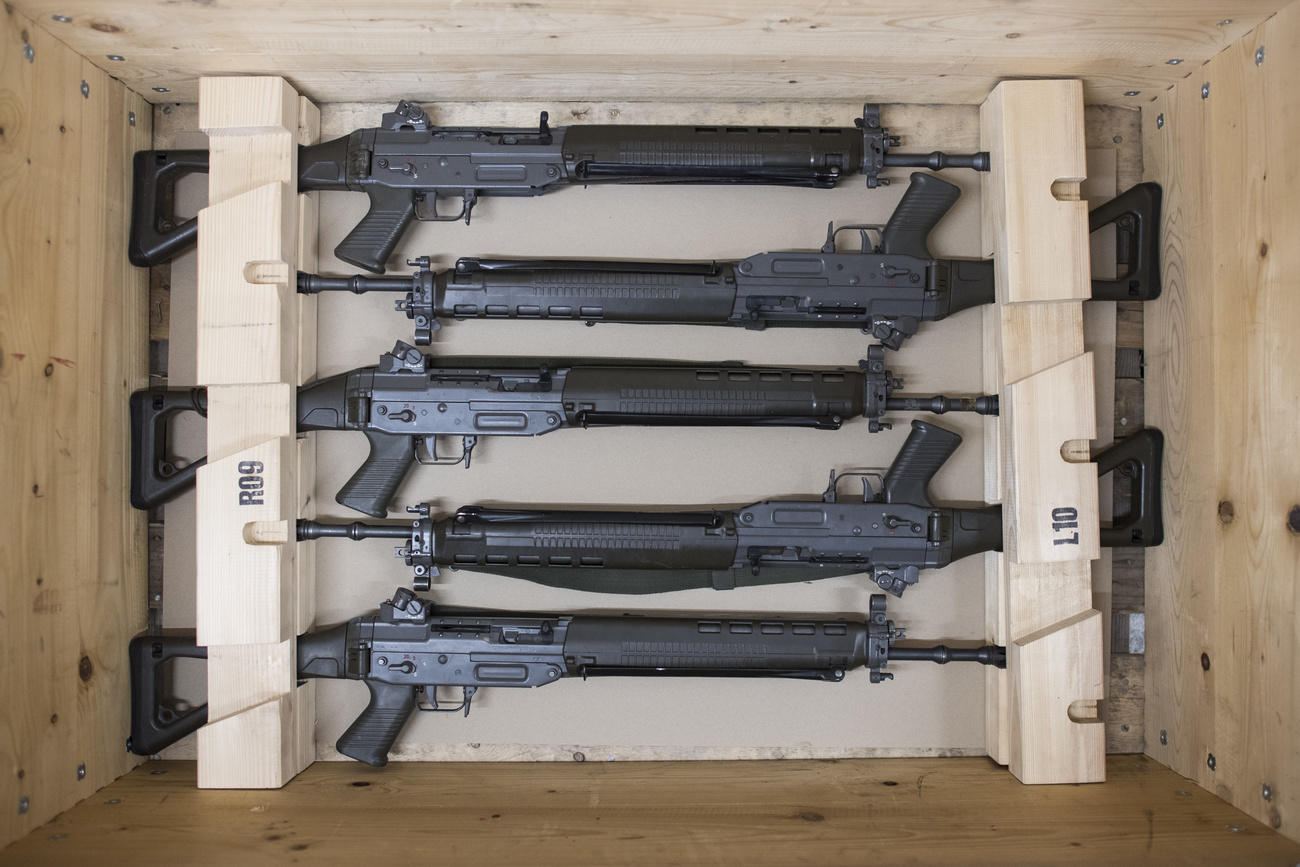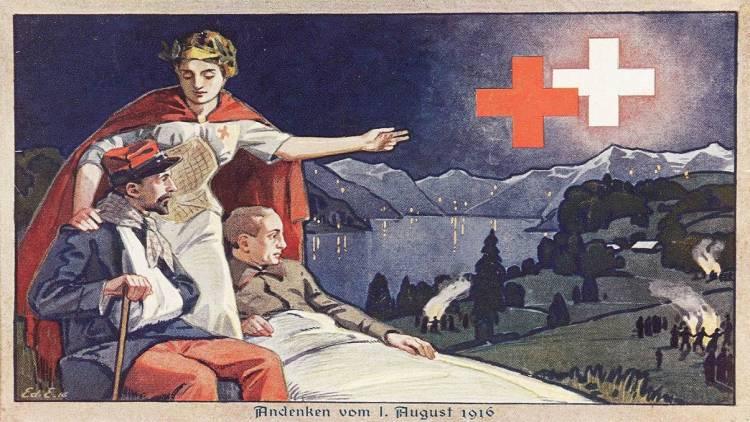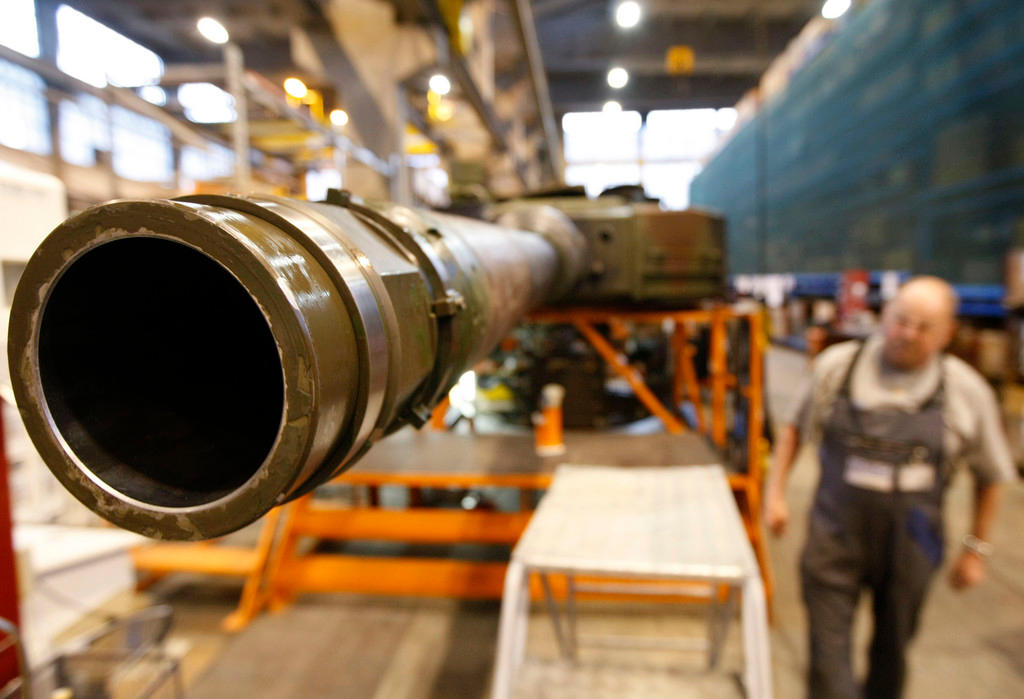Voters to have final say on arms export ban

Campaigners for a ban on Swiss arms exports have handed in the necessary number of signatures to force a nationwide vote on the issue.
A decision by the government a year ago to ease restrictions on weapons sales to countries in conflict sparked a public outcry. Six months after launching a people’s initiative aimed at blocking the plans, the campaigners on Monday handed in more than 134,000 signatures to the Federal Chancellery.
This is an unusually short time for this stage in the direct democratic process – campaigners have up to 18 months – and relatively high number – at least 100,000 signatures are necessary.
However, it is not certain whether the initiative will win a majority in a nationwide vote expected in about two years from now. Opponents of the acquisition of new fighter jets for the Swiss air force collected about 500,000 signatures within a month in 1992 but their initiative was thrown out nevertheless at the ballot box a year later.
Look back
The latest controversy over Swiss arms exports began 12 months ago when the government announced its intention to relax rules on the export of war materiel to conflict-ridden countries.
It argued the reform was aimed at boosting the Swiss arms industry. However, it was forced to abandon its plan at the end of October due to strong opposition notably from the parties on the centre-left and civil society.
A report by the financial supervisory bodyExternal link which criticised the quality standards of the government’s verification procedure on arms exports, as well as media research into the use of Swiss war materiel in several conflict regions added to the public outrage.
In a first phase, an attempt by parliament to have a greater say on weapons exports at the expense of the government appeared to be successful but the proposal was ultimately thrown out in December.
In constitution
The initiativeExternal link wants to enshrine in the country’s constitution the criteria for the export of war materiel from Switzerland. It foresees a ban of exports to countries involved in international conflicts or civil wars.
Exceptions would only granted for democratic countries which have an arms export regime similar to the Swiss regulations, or if these countries are acting with a mandate of the United Nations.
The export ban is notably aimed at nations which systematically violate human rights. In addition, countries are targeted where there is a risk that the imported weapons will be used against civilians or that these arms will be sold to a third country.
Observers say the campaigners have benefited from the political climate and the use of online tools to speed up the collection of signatures.
An estimated 50,000 people responded to a call last year, pledging to help organise the support for a nationwide vote. The non-profit WeCollectExternal link platform simplifies the collection of signatures for campaign committees seeking to extend their reach.

More
Swiss arms exports still at odds with humanitarian tradition

In compliance with the JTI standards
More: SWI swissinfo.ch certified by the Journalism Trust Initiative













You can find an overview of ongoing debates with our journalists here . Please join us!
If you want to start a conversation about a topic raised in this article or want to report factual errors, email us at english@swissinfo.ch.